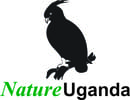Connecting People and the Planet: Exploring Digital Innovations for Wildlife Conservation

The National Wildlife Conservation Conference held on Feb 22, 2024 at the Uganda Museum highlighted the pressing need to integrate technology into wildlife conservation efforts. The conference, organized by the Ministry of Tourism, Wildlife and Antiquities in collaboration with NatureUganda, World Wide Fund for Nature (WWF) and Uganda Wildlife Research and Training Institute, marked a significant stride in leveraging digital innovations in wildlife conservation. It is one of the activities preceding the commemoration of World Wildlife Day (WWD) 2024 in Uganda.
Under the theme “Connecting People and Planet: Exploring Digital Innovation in Wildlife Conservation,” stakeholders from government bodies, conservation organizations, academia, and the private sector convened to deliberate on the role of technology in boosting conservation of wildlife and other natural resources.
In his remarks, the Guest of honor, Minister of ICT and National Guidance, Dr. Chris Baryomunsi, emphasized that technology is not a luxury but a necessity for enhancing efficiency in wildlife conservation and natural resource management. He highlighted the government’s commitment to ensuring accessibility to technology across the population, recognizing its pivotal role in advancing conservation efforts. ‘ We must do everything possible to integrate technology and make technology central in the management of wildlife conservation and other natural resources.’ he noted.
Mr. Achilles Byaruhanga, the Executive Director of NatureUganda, stressed the importance of collaboration, advocating for the involvement of all individuals as stewards of the environment. He highlighted the need for inclusive forums, such as the conservation conference, where stakeholders can meet, exchange ideas and collaborate towards common conservation goals.
During his presentation, the Executive Director of the Uganda Wildlife Authority (UWA), Mr. Sam Mwandha, highlighted UWA’s strategic plan to position Uganda as a global leader in wildlife conservation. ‘Leveraging technology, such as real-time monitoring systems and improved data management tools, is integral to UWA’s efforts in protecting endangered species and their habitats,’ he noted. Mr. Mwandha acknowledged the transformative potential of technology while acknowledging the challenges, including high costs, limited human capacity, and the necessity for frequent upgrades to keep pace with evolving innovations.
The conference, attended by the Minister of State for Tourism, Wildlife and Antiquities, Mr. Martin Mugarra Bahinduka, Undersecretary in the Ministry of Tourism, Mr. Kakula Khirome, representatives from various conservation organizations and students among others, provided a platform for participants to engage in robust discussions on harnessing technology to address pressing conservation challenges, ranging from habitat loss to wildlife poaching. The consensus emerged that while technology presents immense opportunities, concerted efforts are required to overcome barriers and maximize its impact.
Related Posts
Recent Posts
Safeguarding Uganda’s Only Breeding Population of Rüppell’s Vultures
Culture, Traditional Knowledge and Uganda’s Wetlands: Insights from the World Wetlands Day 2026 Public Dialogue
Annual Planning Meeting Sets the Course for Conservation Action in 2026
All Categories
- capacity building (1)
- Conservation and Development (36)
- Eco-tourism (6)
- Education and Awareness (15)
- Forests (13)
- Gorvenance (2)
- Habitats (14)
- membership (2)
- Nature walk (3)
- People (10)
- Projects (13)
- Public dialogue (10)
- Research and Monitoring (23)
- Sites (6)
- Species (14)
- Wetlands (17)
- Wildlife (10)




